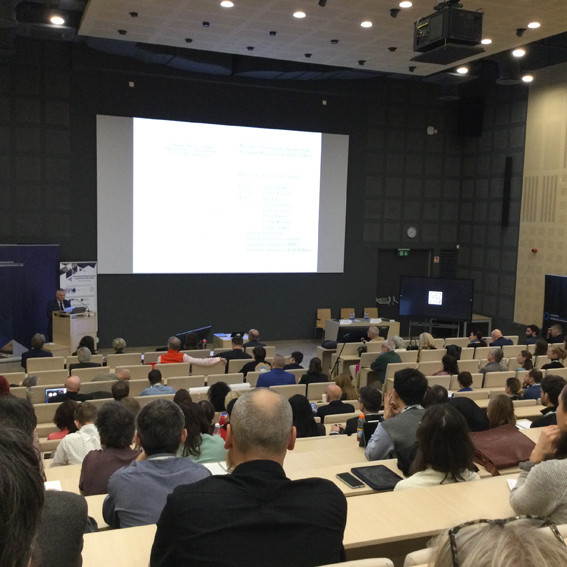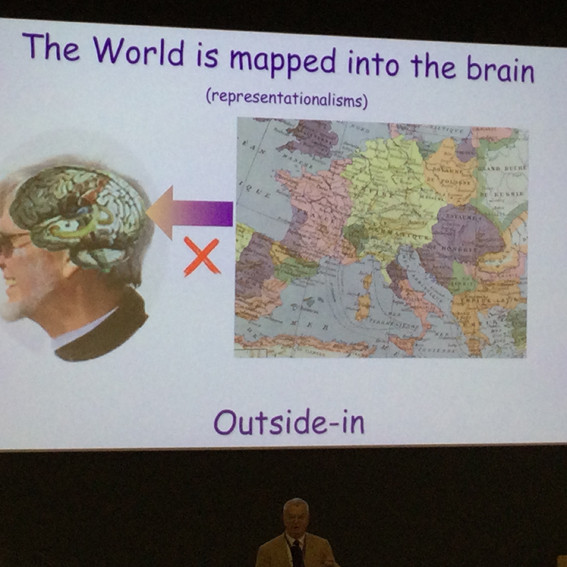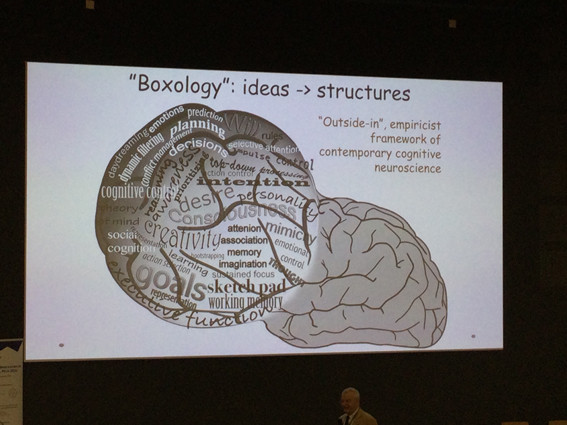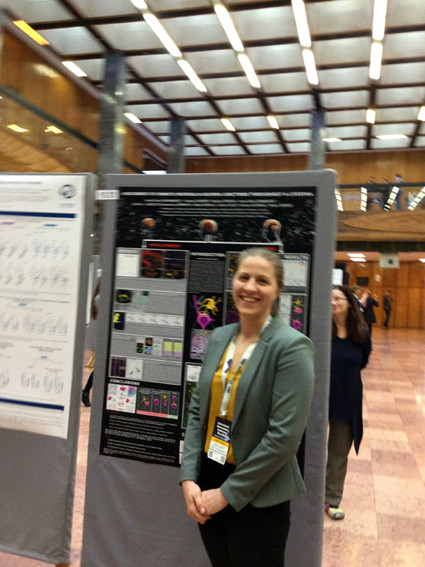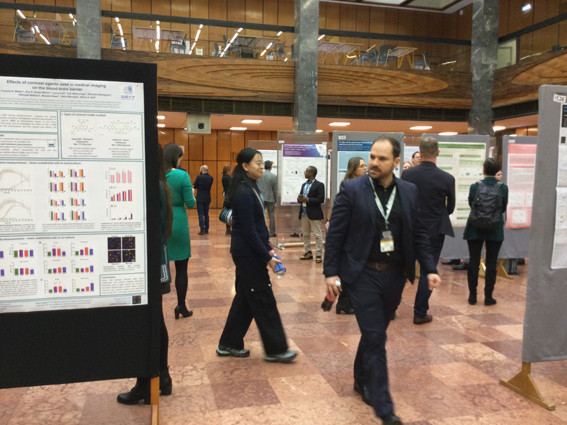Festive neuroscience conference in Pécs
The Hungarian Neuroscience Society (MITT), founded on 21 January 1993, held its first conference just thirty years ago. The conference took place in Pécs, Hungary, and was chaired by Professor László Lénárd, the first President of the MITT. The venue of this year's conference was again the University of Pécs, with Professor István Hernádi from Pécs as President of the MITT and Professors Zsuzsanna Helyes and Dóra Zelena as Chairpersons of the INC2024 (International Neuroscience Conference), organized by the Faculty of General Medicine of the University of Pécs on 25-26 January.
The first and plenary speaker was probably a no-brainer, and the topic of the presentation was not much to think about. The lecturer was Dr László Lénárd, Professor Emeritus of the Institute of Life Sciences of the University of Pécs and the topic of his lecture was the (first) thirty years of MITT, which he presented to the audience based on his personal experience.
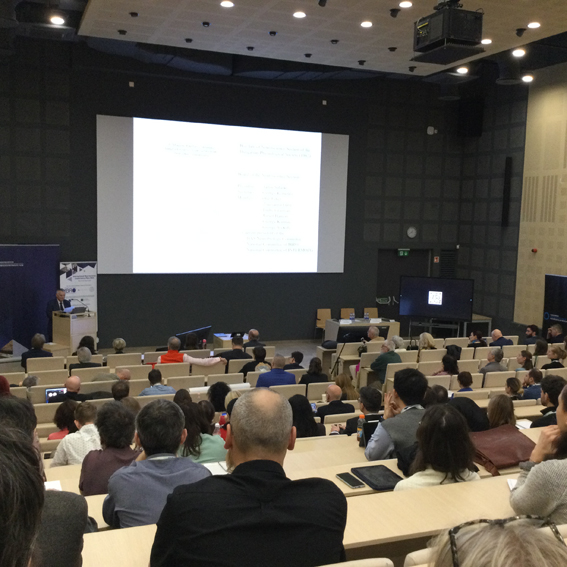 The history of an association is somewhat intertwined with the history of its members. The founding of MITT, yes, but not its development was helped by János Szentágothai, one of the greatest of all Hungarian neuroscientists, whose death was announced on 8 September 1994 in Vienna at an international neuroscience conference attended by the then one-year-old MITT members, too. His name is also preserved in the Szentágothai János Research Centre in Pécs, and not far from the building, on the wall of the Nano-Bio-Imaging Centre, we see the name of István Ábrahám, who began his career at KOKI and ended it tragically early, with the construction of this microscopic centre of his dreams.
The history of an association is somewhat intertwined with the history of its members. The founding of MITT, yes, but not its development was helped by János Szentágothai, one of the greatest of all Hungarian neuroscientists, whose death was announced on 8 September 1994 in Vienna at an international neuroscience conference attended by the then one-year-old MITT members, too. His name is also preserved in the Szentágothai János Research Centre in Pécs, and not far from the building, on the wall of the Nano-Bio-Imaging Centre, we see the name of István Ábrahám, who began his career at KOKI and ended it tragically early, with the construction of this microscopic centre of his dreams.
Professor Lénárd's presentation was followed by perhaps the most anticipated talk of the whole conference. In the lecture of the Endre Grastyán Theoretical Building of the University of Pécs, the former student of Endre Grastyán, the Agy Award winner György Buzsáki, a former student of the University of Pécs Medical School, gave his lecture. His lecture at the SfN in Chicago in 2019 was attended by 7,000 (seven thousand) people, in Pécs it was impossible but even sitting on the steps. It was in Chicago that his book "The Brain from Inside Out", which was closely related to the theme of his lecture, was first available for purchase. In Buzsáki's interpretation, the brain is a controller, not just a coder and interpreter of signals and information from the outside, as many people still assume.
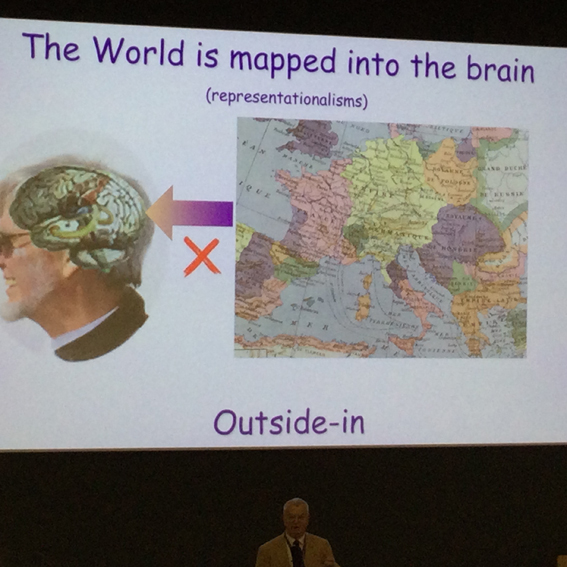 Other thought-provoking and philosophical lectures at the symposium were given by Christof Koch (Allen Institute) and Joseph LeDoux (New York University).
Other thought-provoking and philosophical lectures at the symposium were given by Christof Koch (Allen Institute) and Joseph LeDoux (New York University).
Rethinking and re-evaluating, critically examining and putting the past in a different context was also a feature of the highly successful plenary lecture of Professor Zoltán Molnár from Oxford on Thursday evening. Taking into account the impact of evolution, he examined the development of brain wiring, stressing that basic research is essential! As he said, the true significance of the sixth layer of the cerebral cortex has not yet been revealed, which is why further studies are essential.
This year's Buzsáki Distinguished Lecturer, also the winner of the Brain Prize, was Professor Jes Olesen from the University of Copenhagen. He gave a lecture entitled "Translating migraine from man to animal" - on which Professor Zsuzsanna Helyes said before presenting the prize that Professor Olesen had made it clear to everyone that he knew everything there was to know about migraine. Professor Olesen concluded his lecture with a similar thought to Professor Molnár: "A thousand techniques are useless, without basic research there will be no real progress!"
The success of the conference was demonstrated by the fact that the auditorium was still almost full on Friday evening when Dr Ewelina Knapska from Warsaw gave a plenary lecture on social relations.
During the two days of the event, the interested audience was able to gain insight into the results of six different research areas, from the preclinical study of autism to the molecular biology of stress disorders and the still poorly understood role of neuropeptides.
The only participant of these symposiums from KOKI was Krisztina Kovács's PhD student Dani Kuti, who deserves special recognition because, although not yet fully recovered from his illness, he delivered his presentation.
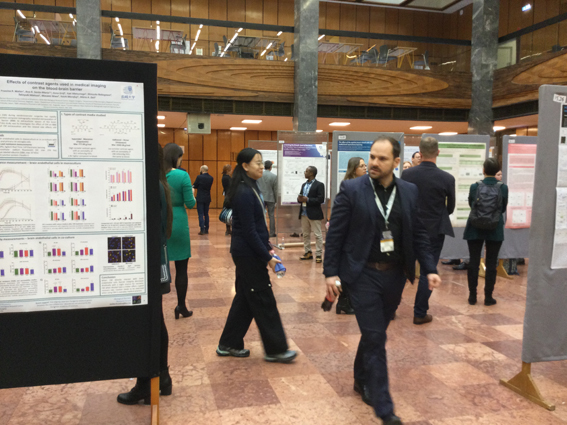 An important part of the scientific programme was the poster session in the Dr György Romhányi Lobby, accessible from the new building. The average quality of the exhibited works was high, but we have to agree with what some of the visitors commented: a poster should not include the full text of an article. However, there were no complaints about the preparation of the poster presenters! In total, the judges awarded 25 prizes. Vivien Pillár, Anett Dóra Máté-Schwarcz, Anna Velencei, Noémi Kiss and Boglárka Tóth received prizes from our institute. CONGRATULATIONS!
An important part of the scientific programme was the poster session in the Dr György Romhányi Lobby, accessible from the new building. The average quality of the exhibited works was high, but we have to agree with what some of the visitors commented: a poster should not include the full text of an article. However, there were no complaints about the preparation of the poster presenters! In total, the judges awarded 25 prizes. Vivien Pillár, Anett Dóra Máté-Schwarcz, Anna Velencei, Noémi Kiss and Boglárka Tóth received prizes from our institute. CONGRATULATIONS!
But a conference is not just about science. The scientific program's organizers in partnership with Nexus Conference, have tried to think of everything, to "cram" as much as possible into these two days. The food we were served was first class, both in terms of quality, taste and service, and the skill and kindness of the waiters. For those who were hungry for other kinds of food, there were three exhibitions of works by Zsuzsa Katatics and students from the Faculty of Medicine and the Faculty of Arts in Pécs, and the gala dinner was preceded by  a mini-concert with a very famous artist. It was not such a big deal to organize it in Pécs, as not only were and are world-class neuroscientists but also Misi Boros, the winner of the Virtuoso competition, the now internationally renowned pianist Mihály Boros, was also from Pécs. Many people did not even know until the concert that his father was Professor János Boros, the chairman of the Thursday morning symposium and an old friend of Gyuri Buzsáki. That's how our artist knew that Gyuri Buzsáki loved Haydn's music.
a mini-concert with a very famous artist. It was not such a big deal to organize it in Pécs, as not only were and are world-class neuroscientists but also Misi Boros, the winner of the Virtuoso competition, the now internationally renowned pianist Mihály Boros, was also from Pécs. Many people did not even know until the concert that his father was Professor János Boros, the chairman of the Thursday morning symposium and an old friend of Gyuri Buzsáki. That's how our artist knew that Gyuri Buzsáki loved Haydn's music.
But to find out, we had to go to Pécs.






